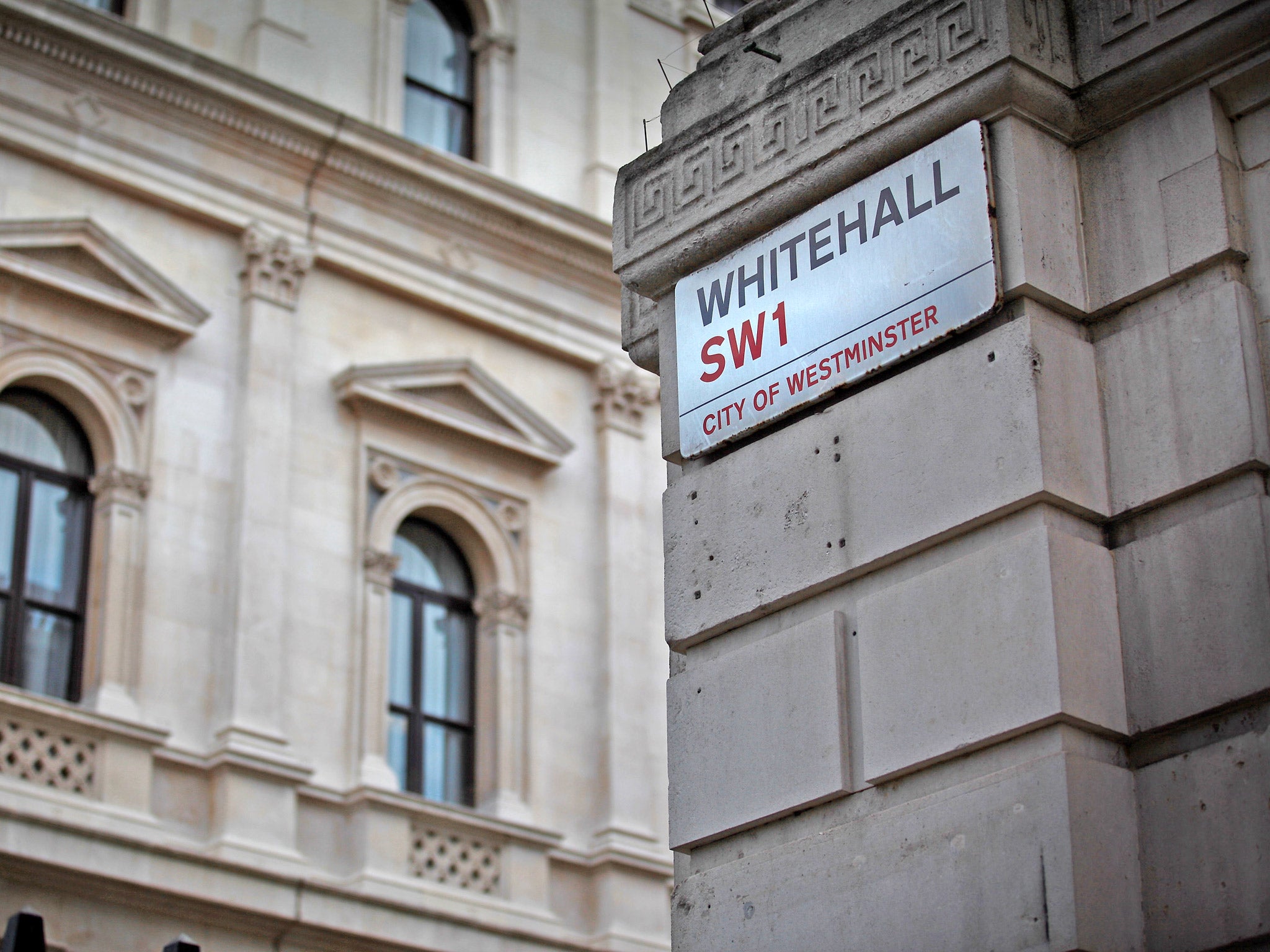Autumn Statement: Whitehall faces reform as George Osborne sees digital future
Government wants £20bn more in efficiency savings

Your support helps us to tell the story
From reproductive rights to climate change to Big Tech, The Independent is on the ground when the story is developing. Whether it's investigating the financials of Elon Musk's pro-Trump PAC or producing our latest documentary, 'The A Word', which shines a light on the American women fighting for reproductive rights, we know how important it is to parse out the facts from the messaging.
At such a critical moment in US history, we need reporters on the ground. Your donation allows us to keep sending journalists to speak to both sides of the story.
The Independent is trusted by Americans across the entire political spectrum. And unlike many other quality news outlets, we choose not to lock Americans out of our reporting and analysis with paywalls. We believe quality journalism should be available to everyone, paid for by those who can afford it.
Your support makes all the difference.Britain’s public services are facing the biggest upheaval in a generation under plans set out by the Government to find up £20bn of efficiency-saving by the end of the decade.
In order to meet eye-wateringly tight cuts to spending over the next five years, ministers are intending to outsource swathes of services currently provided by the public sector.
Some of these services will be contracted out to companies such as Serco and G4S, while others will become new mutual companies run by their employees.
As a result, Government departments will dramatically shrink in size with many backroom functions, such as IT, HR and legal support being merged and potentially outsourced.
Up to £10bn of the £40bn that the Government spends every year on goods and services will also be centralised with the intention to capitalise on savings on bulk purchases. Government department will have to “comply or explain” if they want to keep specific spending in-house.
The plan is outlined in a document released alongside the Autumn Statement by the Treasury and the Cabinet Office.
It also reveals how the Government intends to use technological advances to save money for the Government.
It suggests, for example, that all police evidence collection and witness statement should be digitised – removing the need for police officers to return to the station to write up notes and reports.
The information would then transferred into the court system – and much greater use made of video links for witnesses, suspects, lawyers and police officers to give evidence without turning up in person.
At the heart of the plan is a view by ministers that reductions in spending can only be made if government spending is viewed as a whole rather than through the prism of individual departments.
The Cabinet Office minister Francis Maude said the aim was to deliver on the £10bn savings target by 2017-18, rising to a potential £15bn to £20bn by 2019-20.
The appointment in September of former BP executive John Manzoni as Whitehall’s first CEO, with a brief spanning the whole of the Civil Service, is an important part of the new approach.
The head of the Government’s commercial, digital, HR, communications, property and major projects all report into Mr Manzoni and the next spending review is likely to identify cross-departmental cuts to meet savings targets.
Mr Maude said the Cabinet Office and Treasury would “work together as a strong corporate centre of government to control spend and drive out waste, just as in any well-run complex business”.
He highlighted plans for a big expansion in the number of government services that could be accessed online. The aim was to ensure that “nine out of 10 of the online public” used digital public services by 2020.
Other savings would come through opening up delivery and “back-office” services to other providers.
“As budgetary pressures continue to bear down on departments, the Government will need to look objectively at whether it is best placed to deliver public services in house,” the report suggests.
Such a move will be highly controversial with unions, but Mr Maude believes that some of the criticism could be offset by spinning out public services into new mutual companies controlled and run by their employees.
Subscribe to Independent Premium to bookmark this article
Want to bookmark your favourite articles and stories to read or reference later? Start your Independent Premium subscription today.
Join our commenting forum
Join thought-provoking conversations, follow other Independent readers and see their replies
Comments